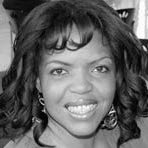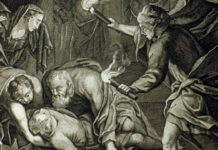
A new study by Ebony O. McGee of the College of Education at Vanderbilt University in Nashville, Tennessee, and Lasana Kazembe of the College of Education at the University of Illinois at Chicago, examines the experiences of Black faculty members who give presentations at academic conferences.
Thirty-three Black professors were interviewed about their participation in a number of presentation contexts, including national conferences, symposia, and campus job talks. Participants in the study reported encountering multiple layers of racial stereotyping and bias. They also related how their racial awareness enabled them to develop strategic coping mechanisms to manage audience reactions.
The authors stated that “by examining Black faculty members’ struggles to be valued personally and professionally in White-dominated academic sites, the study findings can enrich critical interpretations of racism in higher education.”
Ebony McGee is a graduate of North Carolina A&T State University in Greensboro, where she majored in electrical engineering. She earned a master’s degree in industrial engineering at the New Jersey Institute of Technology in Newark and a doctorate in mathematics education from the University of Illinois at Chicago.
Lasana Kazembe holds bachelor’s, master’s and doctoral degrees from the University of Illinois at Chicago.
The study, “Entertainers or Education Researchers? The Challenges Associated With Presenting While Black,” was published in the journal Race, Ethnicity, and Education. It may be accessed here.













Dr. McGhee,
It appears that entirely too many Black professors are concerned about placating their White peers along with hopefully obtaining tenure as compared to intellectually neutralizing their White racist tendencies. The unfortunate aspect about this White higher education racism that if other Blacks were committing similar insulting and egregious acts, these same 33 so-called Black professors would be so inclined to respond totally different.
Dear Colleagues,
When Black people go after other Blacks in a majority-populated conference or what have you, it may be/usually is the case that they are self-hating and feel more comfortable or even obligated to go after Black colleagues, especially if their fellow faculty are there. I assert this because if you substitute a European for the Black scholar, many of the same Blacks will not say a thing about the scholarship, no matter what they think. It’s as if criticizing ‘massa’ is anathema.
Similarly, Caucasian scholars are nowhere near as critical of other Caucasian as they are of Blacks – when each presents the same damn thing! Many of us on both sides have internalized Black hatred to the point where we do not realize what we are doing.
To help attenuate the problem, we should consider that a private critique of a Black’s scholarship is a much better way to go, and a public celebration of a Black’s scholarship is the right thing to do.
Face it, most (many) Caucasians are inclined to criticize any Black scholars in their fields and beyond as well, no matter how good the work is. The greatest work is given an “OK” rating, but just barely. It is rare for a Black scholar to get her/his just due until after they have died, if then.. I rely on people of color to gauge my commentary/performance/research quality. If I didn’t, I would have checked out a long time ago.
The differences in assessments are usually astounding. I recall a situation where a Caucasian female questioned a Black scholar’s ability to read, as well as manipulate the internet: “Do you know how to refresh an internet page?” This happened without a shred of reluctance on the woman’s part. Nobody in the room said a single thing, so I went after her with a vengeance….a thousand paper cuts were inflicted. She did not apologize, insisting that in academe we are free to exchange ideas no matter how controversial. Now, if that isn’t a KKK’r minus her white robe……
White supremacy is a horrible thing. It is psychosis inducing – in that most Caucasians actually believe it – no matter the evidence, and it in turn destroys Black people’s lives day in and day out. Come to think of it, it destroys lots of Caucasians’ lives as well. The psychosis is normalized to the point where Blacks protesting supremacy are dismissed. So we have to find a way to live in a cloud of psychosis, which is very, very difficult.
I recall one example that comes to mind that is unforgettable: Mr. Andre Watts presented an all-Beethoven recital a few decades ago that I attended. The house was sold out, as it should be for him. I knew the works well, as did the two Black people in my company. The performance was riveting, thoughtful, energetic, determined, searching and intense. It provoked some deep thought about the works he played. While egressing the concert hall I had the profound misfortune of encountering a Caucasian male classmate. I did not ask for an opinion because the guy is hopelessly bigoted. So, in typical white supremacist behavior, he volunteered, “Watts definitely played all the notes, but I am not convinced that he understands Beethoven.” I told him where to go and how to get there, and it was cathartic.
Re: Kwazi,
In my view, your entire commentary and analysis is deeply flawed and a gross misinterpretation of my previous point. More specifically, I noted how so-called Black scholars are too busy seeking validation from their White peers by so happily embracing the political correct mantra in their research. In other words, refusing to appropriately identifying the perpetrator of the higher education crimes (i.e., disparate treatment, racist micro-aggressions, etc.).
You noted that “Caucasian scholars are nowhere near as critical of other Caucasian as they are of Blacks”. By simply identifying them as “Caucasian” is clear indication of your blind support for the political correct paradigm which is most unfortunate. Actually, if you identified such persons as “White”, it’s in no way shape or form of being disrespectful. Further, every point you attempted to make only solidifies my previous points in how racism is inculcated within the fabric of higher education and its incumbent for Black scholars to appropriately identify it within their respective research.
Black scholars need to discontinue with the neocolonial, apolitical, and borderline mentality if they expect to be treated with the respect and dignity they’re entitled and definitely earned. In other words, Black people need to stop being afraid and ashamed of being Black.
Dr. McGhee,
Thank you so much for validating the experiences of African American professionals in higher education. Oftentimes, academia/higher education is looked at as one of the finest of institutions that set the moral compass for our nation as it relates to many societal ills. Now, this research proves that it does not. Your research explains the experience I have had presenting to fellow faculty members on curricular or administrative matters.
Again, thank you for your contribution to research in higher education.
Re: Althea,
In my view, your politically correct response is one of the main factors why implicit and explicit racism continues to thrive. I am saying this because of your inability to properly identify higher education racism along with seeking validation from a White racist system. Further, your comments is indicative of how of the “suffering in silence” mindset has become part of the accepted norm for Blacks in academe.
Michael:What you have stated is true in reference to Kwazi’s and Althea’s grossly false and inaccurate statements relative to the above subject matter.
Kwazi and Althea’s entire critique on the above title is indicative and reflective of their White Supremacist mindset for which they are not evenly remotely aware.
Black people educated in White institutions indeed take on the characteristics of those White racist institutions which is reflective in their thinking, actions,problem solving abilities, and analyzing of problems.
Frantz Fanon conducted in depth research and did the critical analysis of the impact of Slavery and Colonialism on people of color throughout the Diaspora in his book titled Black Skin/White Mask.
Many Negroes educated in White racist institutions by a White racist system are in indeed of afraid of being Black and proud.
Adam Clayton Powell Jr was right when he said “Harvard has ruined more Negroes than bad whiskey.”
Negroes that work in White institutions like Vanderbilt are simply of afraid of being Black or they simply don’t know what it means to be Black and proud in academe. They fear if they speak out on a multitude if issues in White institutions their jobs and positions will be in jeopardy so they are constantly trying to please their master which is the way it always was in the Antebellum Period in the United States..
In 1972, some of my college students in a White University asked me, “when will they stop discriminating against us?” My answer was, “when your grand children have great grand children.”